What is our mission?
Our mission is to produce engaged, independent, reflective, critically thinking graduates who will be inspired and able to actively contribute to the improvement of society.
How does Biology fulfill this mission for you?
By integrating all levels in Biology so that our research and teaching reflect comprehensive understanding of biological patterns and processes, from the molecule to the whole ecosystem.
The undergraduate program was thus designed to offer a balanced, high-quality education, aimed at fostering a commitment to the learning and application of biological principles throughout life.
Students are trained to ‘think as scientists’ by using evidence-based reasoning to understand phenomena and solve problems. Thinking as scientists is central to effective decision-making and has benefitted graduates pursuing careers in research and in other professions, such as teaching, medical sciences, biotechnology, business, civil service, law, and NGOs. Graduates will thus be competitive in the workplace and in leading professional and graduate schools.
How does Biology teach you?
We teach in diverse ways to promote active, deep, engaged, learning.
We are committed to explicitly incorporating indigenous perspectives and knowledge into our curriculum where appropriate.
We aim to provide a learning environment that fosters equal rights and opportunities for all, in an atmosphere of mutual respect and dignity.
Students will have opportunities to take courses that incorporate concept-based lectures, Socratic question-and-answer approaches, student and professor-led seminars, peer instruction, conceptual and applied problem-solving, iterative writing/editing exercises, student debates, ‘hands-on’ lab practical experiences including state-of-the-art molecular biology and biochemistry techniques, use of our nearby top class biological field station (QUBS) as well as multiple opportunities for field courses across the world, small-sized 4th year seminar courses, and one-on-one student-professor honours thesis and independent research projects.
What are the acquired skills upon program completion?
Graduates will have directly experienced the joys of scientific thinking and discovery, and mastery of the following skills:
Fundamental Skills
- Think critically, originally, and creatively, to develop innovative ideas and solutions to both fundamental and applied problems in our society.
- Discuss, evaluate and critique evidence and its interpretation, to reach an advanced understanding of phenomena, processes, and perspectives that arise in modern living.
- Work individually, and as team-members, to produce high quality, synthetic, incisive written and oral project reports using effective time management.
- Learn independently (i.e. when presented with a question or problem to which the student does not already know the answer, the student is capable of self-driven, independent learning by focussing and logically reflecting on the topic, and then finding, analysing and synthesising the relevant information to address that question or problem).
Biology-specific Skills
- Describe the diversity of animal, plant and microbial life, its origins and evolutionary history, and the fundamental principles that underlie the functioning of living systems, using a core knowledge base that spans all hierarchical organisational levels in biology and includes molecular biology, cell biology, genetics, biochemistry, physiology, ecology, and evolutionary biology.
- Complete all stages of a full scientific investigation including research question formulation, hypothesis development and testing, experimental design, collecting data from lab, growth chamber and/or field studies, data management, quantitative and statistical analyses, critical interpretation of numerical and graphical data, and incorporation of ethical considerations.
- Communicate biological ideas and data effectively, including strategies for effective reviewing and synthesis of scientific literature, science writing, and oral and visual presentations.
- Describe the historical development of biology as a science, its principal theories and concepts, and its most recent ideas and discoveries.
- Discuss, evaluate and reflect on the importance of the biological sciences to other disciplines, to human welfare, to effective conservation of other species and the environment, and to the sustainability of our civilisation.
